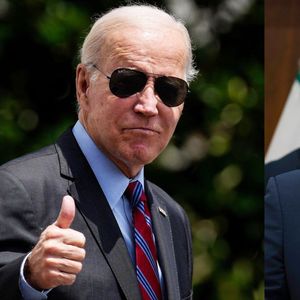As the only
governor in a crowded field of Democratic presidential
candidates, Bill Richardson loves to tell audiences he's a
go-to guy with a record of accomplishments as New
Mexico's chief executive.
A just-ended
legislative session gave Richardson more fuel for his
campaign: an increase in the state's minimum wage to $7.50
an hour--a rate higher than what Congress is
considering--as well as incentives for renewable
energy development and income tax cuts targeting
lower-income New Mexicans.
''As long as he
is a candidate in the presidential campaign, he is going
to talk about his accomplishments as governor and set those
apart from his counterparts, who are all senators,''
said Lonna Atkeson, a political science professor at
the University of New Mexico.
But Richardson's
five-year record as governor also offers potential
fodder for critics and campaign consultants cooking up
attack ads in case he breaks out of the second tier
into the front-runners' pack or finds a spot on the
general election ticket.
This year
Richardson lobbied hard to win legislative approval of a
measure to legalize the medical use of marijuana and he's
still prodding lawmakers in a special session to
provide domestic partners--gay or
heterosexual--with the same rights as married couples.
By executive order in 2003, the governor extended
health insurance and other benefits to domestic
partners of state employees.
Those issues
likely will play well with liberal-leaning presidential
primary voters, analysts say. But in a general election,
domestic partnerships could become a wedge issue for
moderate-to-conservative voters.
''In terms of
positions he has taken, what's of more interest is not so
much the primary race--it's whether those positions
will hurt him in a general election race,'' said
Dennis Goldford, a political science professor at
Drake University in Iowa.
Immigration is
another tricky issue.
A law was enacted
in 2003 with Richardson's signature to allow illegal
immigrants to obtain driver's licenses, and the governor
advocates immigration reforms nationally that would
offer a route to citizenship for some of the millions
living illegally in the United States.
''In big labor
states they may have some concern about the immigration
issue in a sense of taking jobs away,'' said Goldford.
During his first
term in office, Richardson signed into law a bill
allowing residents to carry concealed handguns. He even
obtained a concealed-carry permit for his Glock
pistol. It's an issue that didn't create a stir in a
Western state like New Mexico, but could play
differently elsewhere.
''Conceivably
that could be the source of a contrast ad,'' said Dante
Scala, who teaches politics at Saint Anselm College in New
Hampshire. ''Being a pro-concealed weapons
Democrat wouldn't hurt him as much in this state as it
might in other states'' with restrictive handgun laws.
Richardson
supports the death penalty, although the legislature has
never sent him a capital punishment repeal measure to
test his position.
In his first year
in office, Richardson pushed through cuts in the top
personal income tax rates, which drew support from
Republicans and the business community. But those
Republicans howled when the governor backed a ''bed
tax'' on nursing home care. The tax increase was later
repealed with Richardson's support.
For his part,
Richardson says his experience as governor--as well as
a former congressman, U.N. ambassador, and energy
secretary in the Clinton
administration--separates him from ''other candidates
who can only talk about what they might do as
president.''
Yet Richardson
remains far behind Hillary Rodham Clinton, Barack Obama,
and John Edwards in early polling.
''The problem is
the larger one of making sure he can get attention,''
said Norman Ornstein of the American Enterprise Institute.
He maintains that
primary voters will give Richardson a closer look in
the weeks and months ahead in the campaign season.
''If they're not
listening right this minute, they will be listening.
There will come a point at which the record of being a
governor will work to his advantage,'' said Ornstein.
(Barry Massey with Deborah Baker contributing, AP)


















































































